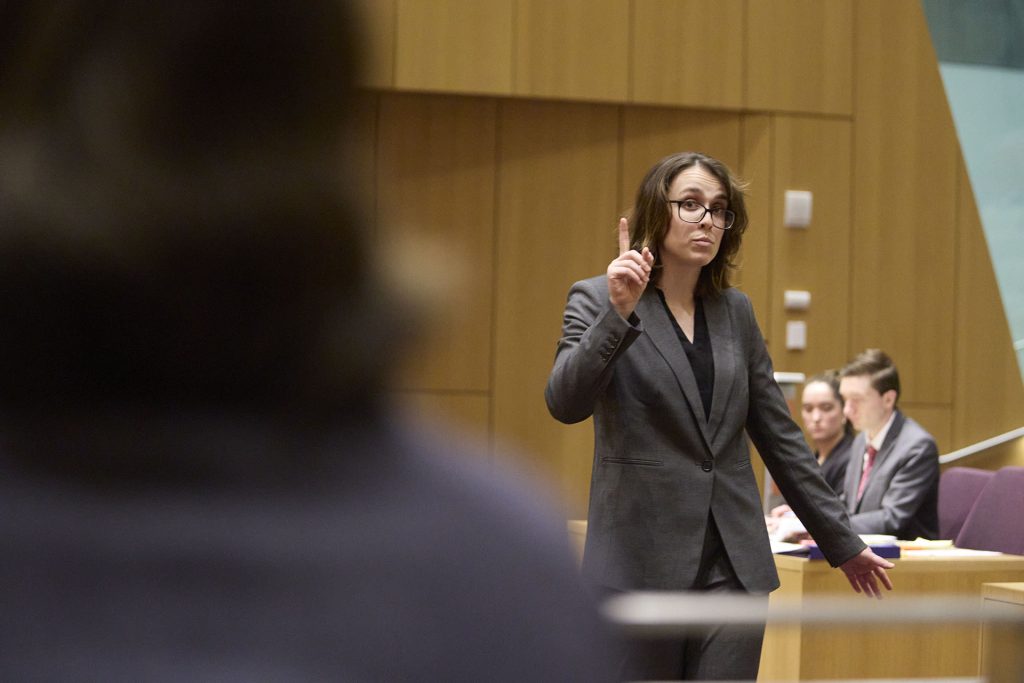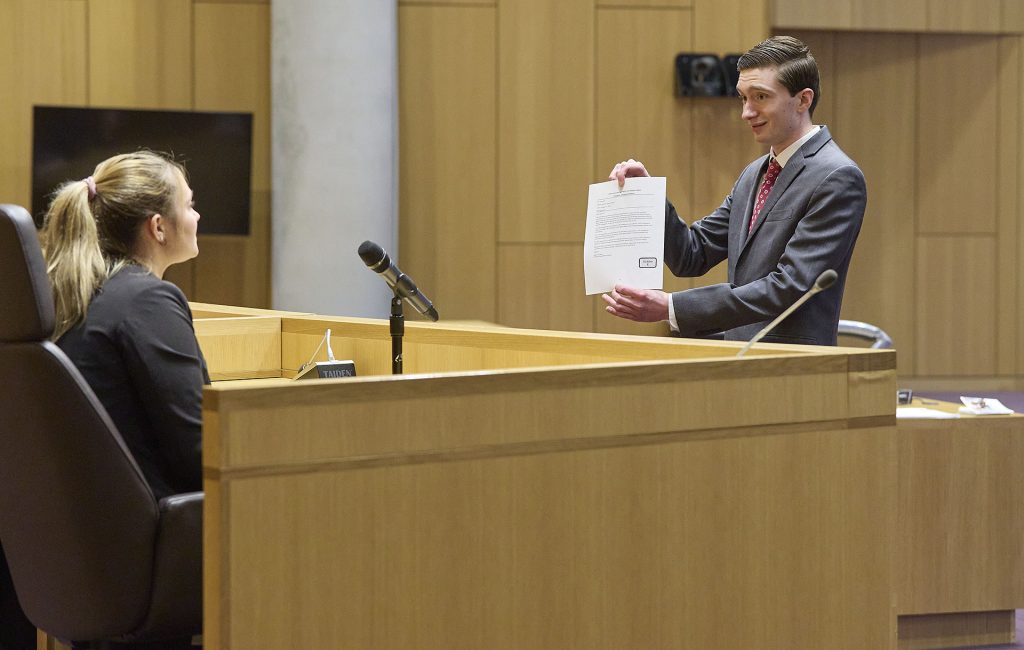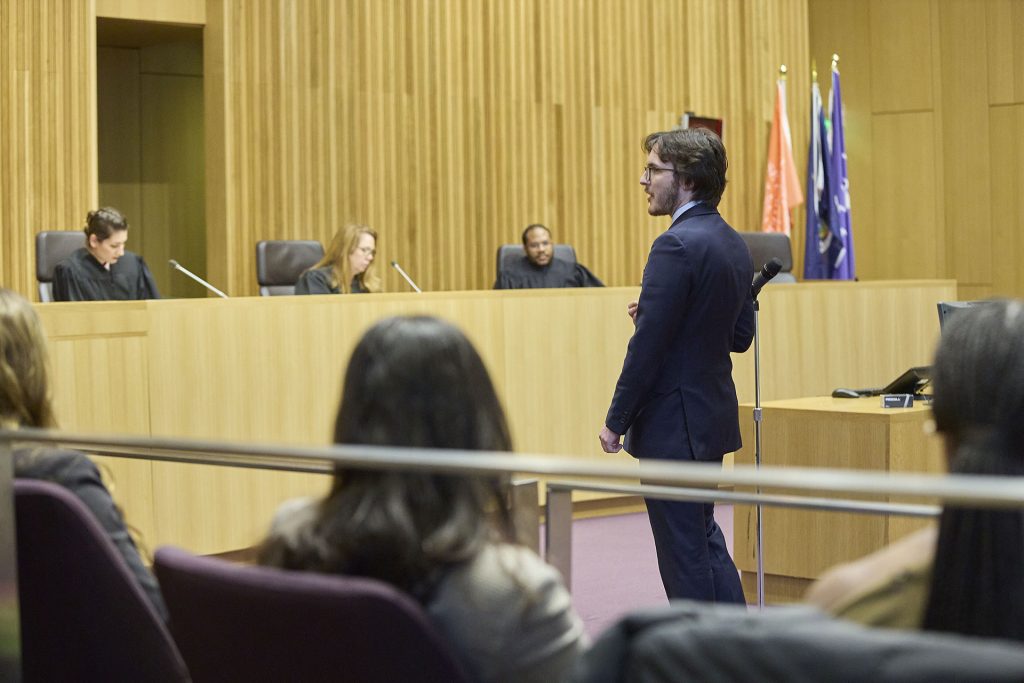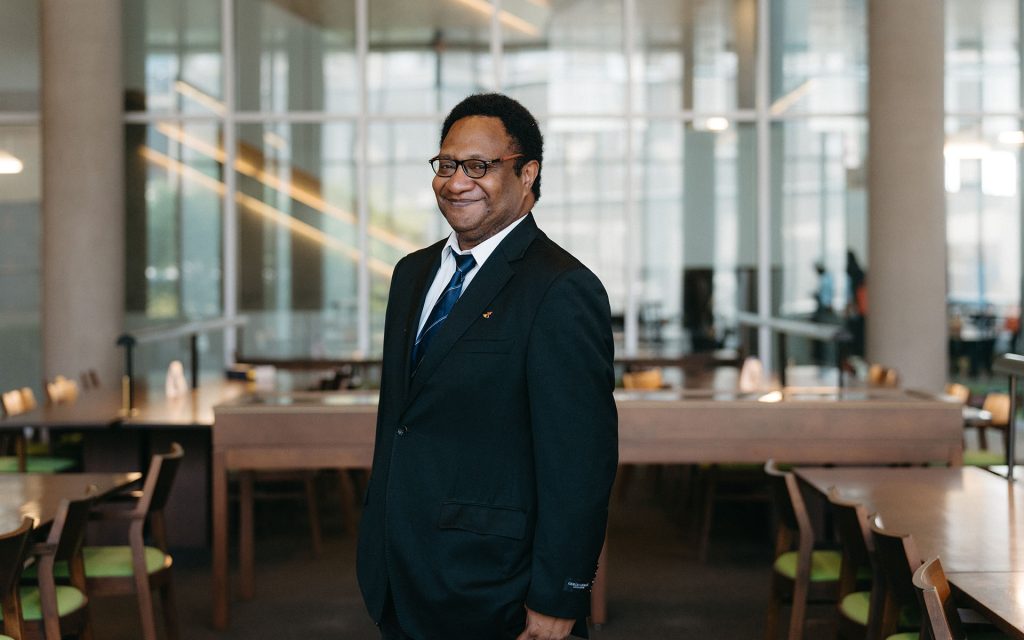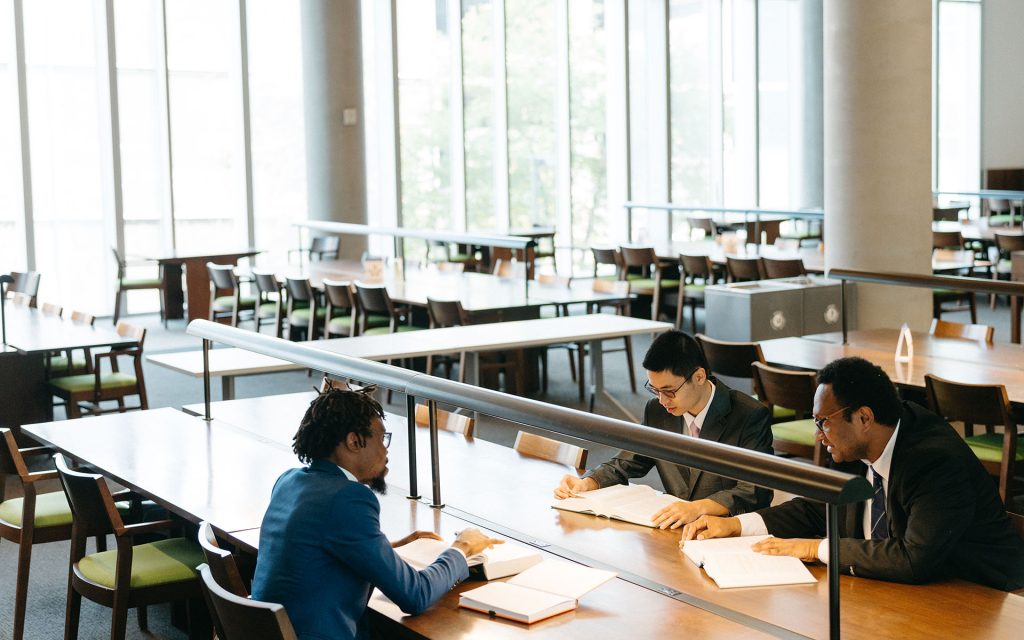Some families ski or hike together. Others volunteer in their religious communities or participate in local service projects. The Kubala family, however, serves their country together. In honor of Military Appreciation Month this May, we recognize the extraordinary dedication of the Kubala family, Elizabeth and Michael and their children Zachary, Josh, and Lindsey, who embody the spirit of service across generations. Their decades of commitment were recently honored as they were named the 2024 Onondaga County Military Family of the Year, the first time a military family received this distinction at a ceremony held at the Onondaga County War Memorial.
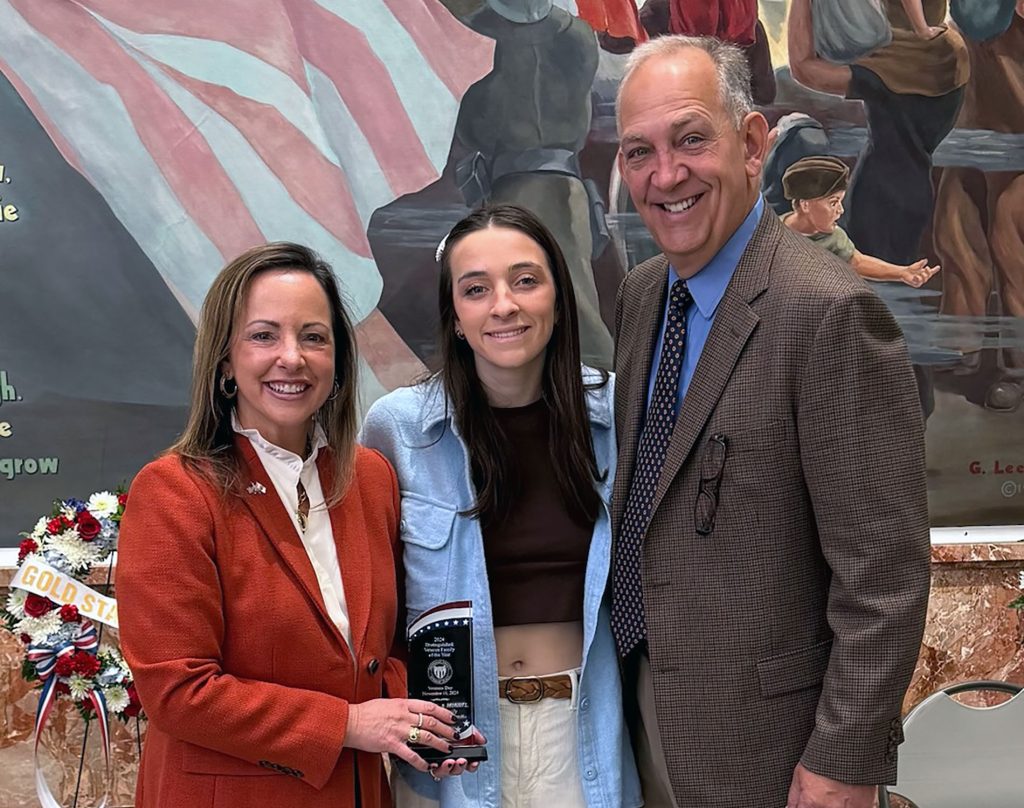
The Kubala family has close ties to the military, but it also has a long-term connection to Syracuse University and the College of Law. Teaching Professor Elizabeth (Beth) Kubala joined the faculty of the College of Law in 2020 and is currently the executive director of the Office of Clinical Education and the director of the Betty and Michael D. Wohl Veterans Legal Clinic, where she oversees law students assisting local veterans applying for military benefits. She is also the director of Veteran and Military Affairs for the College of Law.
A graduate of the U.S. Military Academy at West Point, Beth received her commission as a military intelligence officer. Later, she was selected for the U.S. Army’s Funded Legal Education Program, where she earned a J.D. and an LL.M. in military law from the University of Missouri-Kansas City. She transitioned into the Army’s Judge Advocate General’s (JAG) Corps, where she served in a number of critical roles, including at the Pentagon. On active duty for 22 years with the Army, her last post was at Fort Drum, north of Syracuse in Watertown, New York, where she served as a JAG officer and then a military judge, retiring with the rank of lieutenant colonel.

But it was Beth’s husband, Michael Kubala, who first brought his family to Syracuse University. After being an Army aviation officer for 25 years, he took a position in 2011 as a professor and chair at Syracuse University’s Department of Military Science, where he was an advisor, mentor, and instructor for the more than 120 students enrolled in ROTC at the University. When he separated from the Army with the rank of lieutenant colonel, he became the compliance coordinator for the Syracuse University Office of Athletics and today is a civilian administrative officer for research and development services at the U.S. Department of Veterans Affairs (VA).
The couple met at Fort Wachau in Kansas and have been married for 31 years. While both serving in the Army, they had three children, all born in different states. Being a military family meant they were separated from their extended family, but it also meant they operated as a tight-knit team as they moved from place to place.
“Military kids are resilient,” Beth says. “I think our kids saw the importance of military life and how rewarding it can be, and I am proud that my husband and my service has left a positive impression on them. I don’t think any of us would trade the time or adventures we’ve had as a military family for anything.”
The Kubala children respected the sacrifices their parents made and came to see the military as an extension of their own family, no matter where they lived. They learned the importance of helping others, both through their parents’ service and as some of the thousands of family members around the world who support the U.S. military in countless ways. The Kubala children grew up with those values instilled in them, and it is something they continue to live by today.
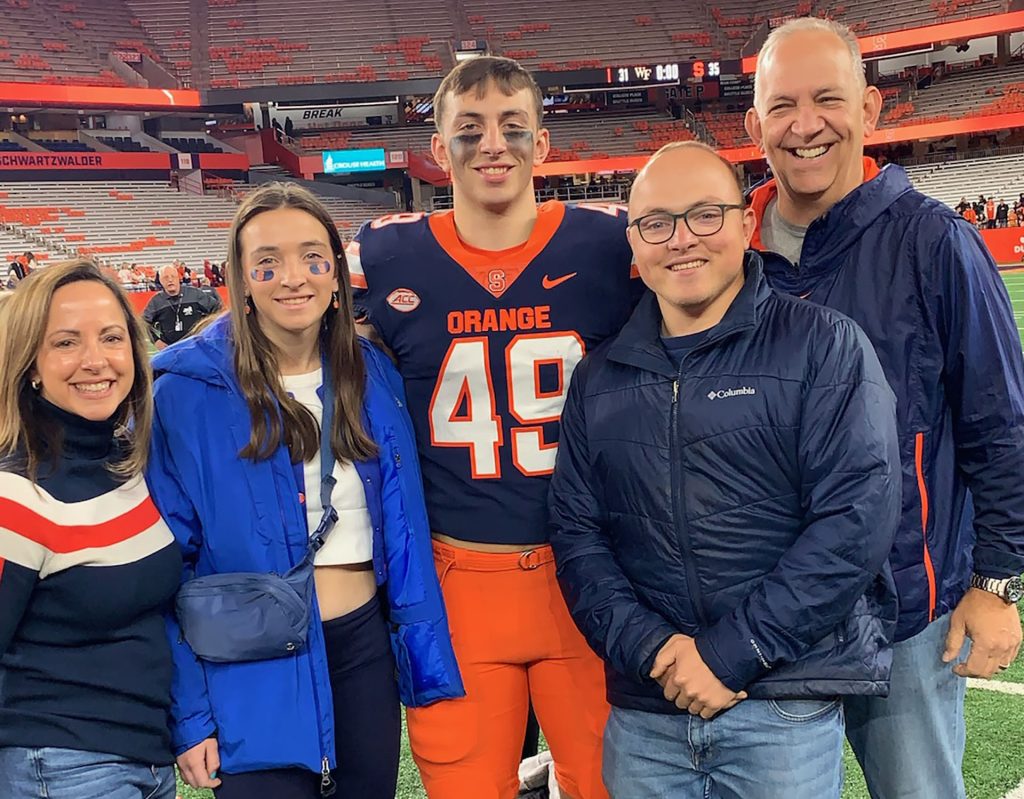
Oldest son Zachary Kubala ’21 recently completed four years as a battalion supply officer in the Army at Fort Riley Kansas. Zachary attended Syracuse University on a scholarship through the Army’s ROTC program, earning a bachelor’s degree from the College of Engineering and Computer Science in aerospace engineering.
Josh Kubala ’26 is currently a junior majoring in political science at the Maxwell School of Citizenship and Public Affairs with a minor in business through the Whitman School of Management. He is also a member of the Syracuse University football team and enrolled in the Army’s ROTC, from which he received a full scholarship.
“It felt natural for me to pick up ROTC, as I grew up in a home of teamwork, discipline, and hard work,” says Josh. “I wanted the challenge of someday becoming an Army officer. Hopefully, I can branch out into aviation one day and fly helicopters like my father, but I’m also considering military intelligence.”
The youngest, Lindsey Kubala ’28 (VPA), is in her first year at Syracuse University, studying environmental and interior design at the College of Visual and Performing Arts. While Lindsey may not serve in uniform, she is able to attend Syracuse University through her parents’ GI Bill benefits and serves as a VA work study student in the Office of Veteran Success.
Beth and Mike Kubala are proud to have served their country and see how their family has grown together to respect the work of the military and continue actively helping veterans. As for the award, the entire family is proud but takes it in stride.
“The award is obviously wonderful, but, more importantly, it speaks to how our parents raised us,” says Josh. “Today they are both working in the civilian world but doing so in ways that are still giving back to the military community. They’ve led us by example, and my hope is that this award will inspire others to do the same.”

